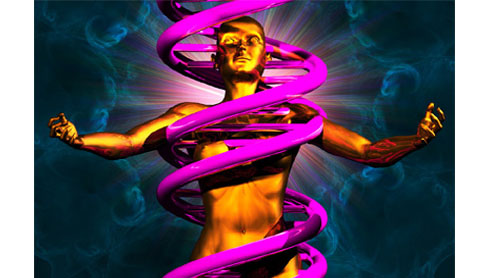
New Delhi: Remember Rizwan Khan of “My Name Is Khan”? Just like he panicked when he saw the colour yellow, there are people who suffer from chromatophobia – the fear of colours. But it can be cured with therapy and counselling, say experts.
According to S.K. Love of Vedicure Wellness Clinic, an estimated 5 to 10 percent people suffer from chromatophobia.“Heredity, genetics and brain chemistry, combined with past experiences, play a major role in the development of phobias. Intense negative experience from the past can cause chromatophobia,” Love said.There are specific phobias for specific colours.The phobia of the colour white is leukophobia, while for black it is called melanophobia.
The fear of purple is called porphyrophobia, fear of yellow is xanthophobia, fear of red is erythrophobia, fear of green is called chlorophobia and fear of blue is known as cyanophobia.Chromatophobia can surface for a variety of reasons—even due to something as simple as the use of names of colours in popular phrases.“ ‘Scarlet Woman’ denotes an adulterous or promiscuous female. ‘Blackguard’ is used to describe a rogue or criminal, ‘Feeling blue’ is a way of expressing melancholy and sadness. For some, the mental and emotional connections between colours and emotions make them averse to certain colours,” explained Anil Patil of Vedicure Wellness Clinic.
People suffering from colour blindness are also likely to develop phobia for colours.“Many people with colour blindness develop chromatophobia. They will be unsure about what colours they are seeing, and things may seem off-kilter.“Any life problems created by colour blindness, such as bad memories or career problems, will be potent triggers for chromatophobia,” said Patil.Chromatophobic reactions can be mental, emotional and physical.
The anxiety and fear can go from mild feelings of apprehension to a full-blown panic attack. People suffering from this phobia can often complain of headaches, nausea and dizziness.“People with this affliction will react negatively when faced with the colour they hate. They will feel ill at ease, and panic will rise if they cannot get away from the source of their distress.
“Nausea, headaches, dizziness and intense anxiety are the primary symptoms of panic attacks,” said Love.The mental symptoms include obsessive thoughts, difficulty in thinking about anything other than the fear, and fear of losing control.Its emotional symptoms include anticipatory anxiety, which is persistent worrying about upcoming events that involve colour, desire to flee from the situation, anger, sadness, hurt and guilt.
However, this phobia of colours is curable.The treatments for chromatophobia are several, including psychotherapy, counselling and hypnotherapy.“Treating the fear of colours will require a little insight into why the phobia is occurring,” said Patil.“If the phobia is based on a medical issue related to colour blindness, or sensitivity to light, good medical care and education should be combined with panic treatment or psychotherapy,” he added.
Alternatively, colour therapy can also be used – either independently or alongside any other therapy.“Some therapists use virtual reality to de-sensitise patients to the feared things. Other forms of therapy that may be of benefit to phobics are graduated exposure therapy and cognitive behavioural therapy (CBT).“Graduated Exposure and CBT both work towards the goal of de-sensitising the sufferer, and changing the thought patterns that contribute to their panic.
“Gradual de-sensitisation treatment and CBT are often extremely successful, provided the phobic is willing to endure some discomfort. Anti-anxiety medication can also be of assistance in some cases,” said Patil.The process to successful cure of chromatophobia includes specific steps to gain confidence, calm and happiness, as well as proven procedures for overcoming anger, sadness, fear, hurt, guilt and anxiety. – Khaleejnews












